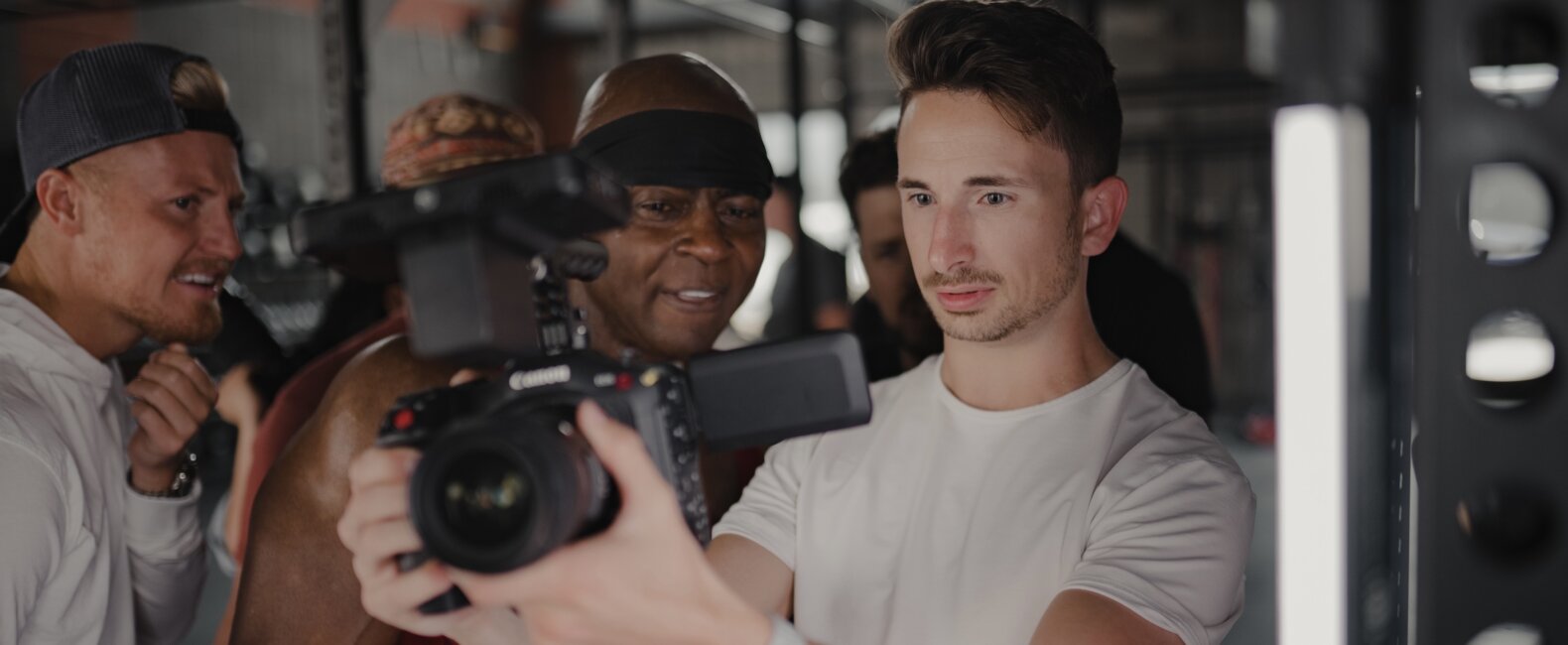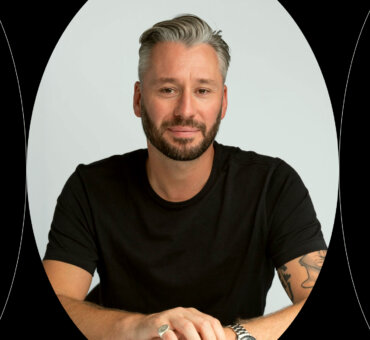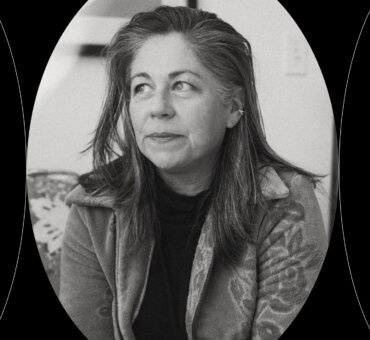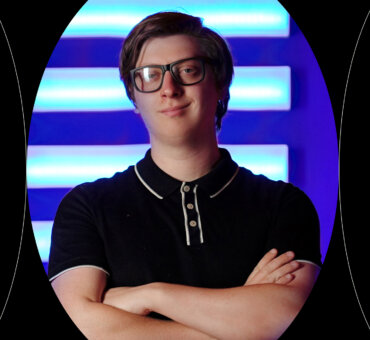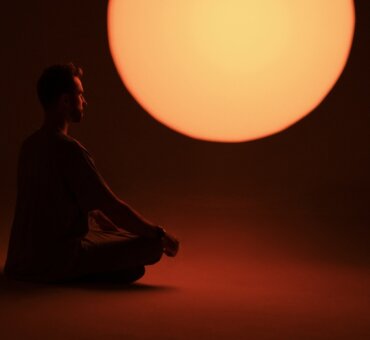Filmmaker and digital creator Landon Bytheway has worked with iconic brands like Amazon, LG, Hyundai, and others. His secret to always finding the right music for his compelling work? Being proactive in your search (and utilizing Musicbed’s favorites feature.) Keep reading to learn more about his creative process, what keeps him inspired, and why he trusts Musicbed to provide the perfect music for his work.
Musicbed: What sparked your passion for filmmaking and storytelling?
Landon Bytheway: I was very heavily inspired by a lot of the early YouTube filmmakers like Freddie W.—Rocket Jump was his channel. He’s one of the earlier Corridor Digital Guys, as well. Devon Super Tramp. So really in the 2015, 2014-2015 era of YouTuber filmmakers is what sparked that—a lot of heavy after-effects and stuff like that. The fact that you could go in and create lightsaber effects and fire and different glitch effects and whatnot on your home computer was just the most insane thing to me. And I think what drove me is that I could do those types of things and no one else except for a couple of people that I already knew in my school were capable of doing that. And so because it was such a unique skill set at the time, even though it wasn’t that long ago, I think that’s what drove me more than anything because it kind of allowed me to be different and flex my creative muscles. So that definitely sparked it a lot.
What keeps you motivated and creatively inspired?
I do have a community that is behind me that likes the stuff that I put out. They’re actively learning from the different things I do, which is very inspiring and motivating for me and very humbling too. I don’t think I’m that good of a creator—I just happen to be in a position where people tend to follow and trust the things that I do, which is crazy to me. But super cool. And so there’s that aspect and there’s also just like, I come from a family of artists. My mom is an insanely talented artist. A couple of my sisters are also really good and a bunch of different mediums too, you know, painting watercolor, colored pencil, charcoal, like, everything. And I’m not a very good artist in that regard, but I feel like I at least got the creative gene. And so there’s just something internally I think for everyone who’s kind of born with that gene that they just constantly want to be creating stuff and they constantly want to be, you know, improving and just creating art period. So obviously, the community is a huge, huge driving force for me. But also I look at work that other people do and I get super inspired and I wanna create a version of my own or it sparks something else and I’m like, oh, I never thought about doing this, like, maybe I should do that and I’ll go out and create it. And so I don’t know, just being surrounded by creatives is huge.
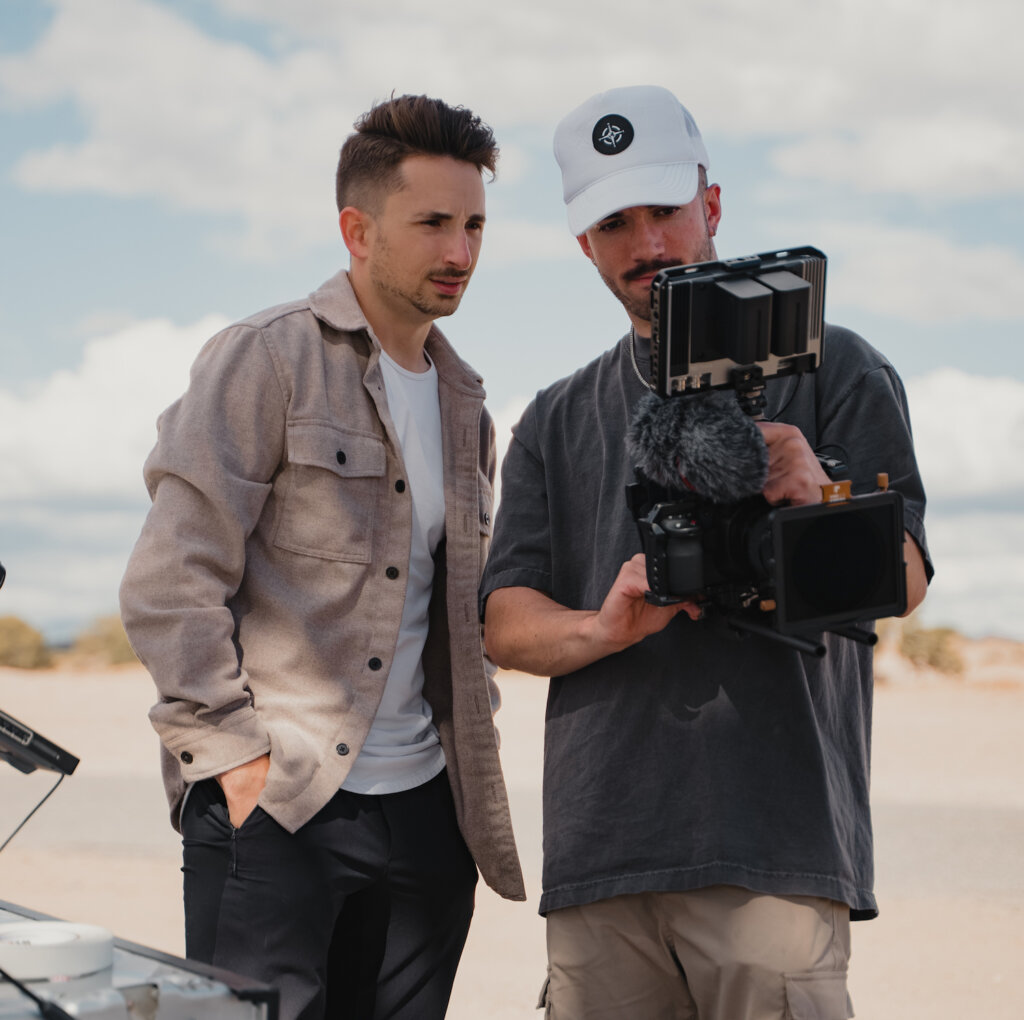
What makes a story visually appealing? What role does music play in storytelling?
Lighting is to me what makes something visually appealing. Lighting is everything when it comes to making that type of content and then up next is audio. If you can have a track that evokes the right emotion, you’re on the right track. I think lighting and composition and just the story, the mood, and the emotion that you want to evoke behind the shot are the most important things in creating a visually compelling piece. And then, like I said with the music, there are so many examples like if you replaced music in a movie with something that’s totally irrelevant. Like it just ruins the shot. It doesn’t make it. And so you have to be pairing stuff that’s visually appealing with stuff that also matches the audio and audio that sounds nice. So you just have to match it up if you want things to look good, they need to sound equally as good. Audio is half of the viewing experience.
What elements do you think are essential for crafting a compelling story?
Like I said, curiosity. I think curiosity genuinely, I believe that you can look at almost pretty much any piece of content. It’s curiosity that makes people click and it’s what makes people stay. If you can pique someone’s curiosity, the moment they see your thumbnail or the first frame, you’re gonna hook him pretty quickly. And I mean, if you look at any visually pleasing movie, short film, or whatnot, it almost always starts with curiosity. If not, it always starts with curiosity because you have to make people see the first frame or the first scene and ask themselves what’s going on, like what’s gonna happen next and what’s going to happen by the end of this piece. And so I think if you can master creating stuff that gets people curious that peaks their curiosity, like they’re gonna wanna keep watching. And really at the end of the day, I’m talking about short films and feature films, but even look at YouTube videos, look at a Mr. Beast video, or anything along those lines. Like curiosity, you want to know what happens by the end of that. So I think if you can nail that, you’re gonna make some great stuff I guess that’s a singular element. I guess the other one would just be emotion-creating stuff that is just evoking a specific emotion that you want your audience to feel. And that’s what’s gonna make a really nice compelling story.
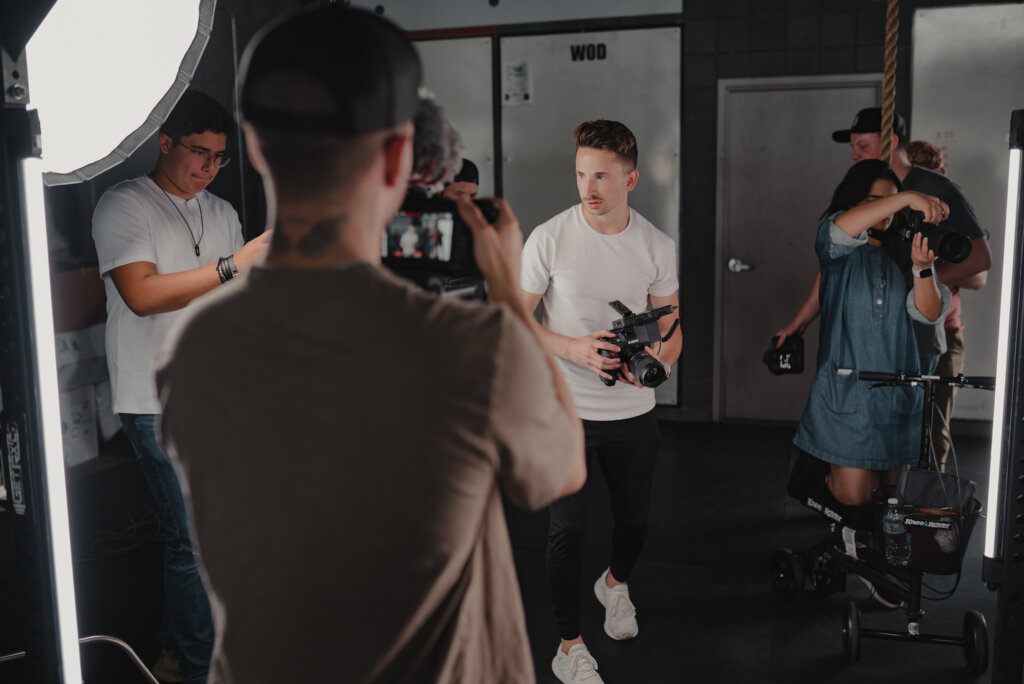
How important is music in your work again?
Music is absolutely crucial. It completely sets the tone for a video. So I always hand-pick the music we use to make sure the right emotion is being illustrated through the screen. So you have more to work with. Music is half of the viewing experience. You need to have that in there, very often too, and what I tend to do and I don’t necessarily do this as much as I used to, but I would, I would almost always previously find the song that I wanted to use first and then edit everything just to that song. And now it’s not that it really has changed too much, but it’s almost like now I come across a song and I hear the song and the music and I’m like, oh my gosh. You can make such a cool piece with this and then I make a video around that song specifically. And so going through the musicbed library or even just browsing on Instagram and seeing some trending audios or cool stuff that people are making. You get hit with all these different types of music and even Spotify songs that I saved five years ago, they’ll randomly play again. I’m like, oh my gosh, what an interesting piece, I just have a really cool idea, the cool concept for a video that I can make to go with this song specifically. Obviously, music is crucial and sometimes it’s the first thing that comes into my brain before I’ve even started thinking about the visuals.
What advice would you give other filmmakers/creators who are just starting their careers?
Make content in a bunch of different categories and then figure out which one gets you the most excited. If you do that type of work for free, you’ve hit the jackpot. I mean, yes, again, obviously I’m gonna agree with myself. But yeah, I think that I mean, if we’re being really just raw and real right now, like being a full-time creator is awesome, I’m not gonna pretend like it’s not the goal and the dream I’ve had since I was a kid, like the fact that I own a production company, that I own Fulltime Filmmaker now. And that’s how I make my living. if you had told me even five years ago that this would be what I’m doing now, I probably just wouldn’t believe you because I honestly can’t believe it myself now. And I think the reason that it’s gone so well and I guess, you know, going along with the advice that I give to people, it’s like, don’t limit yourself to just making content. It’s not just about the content—it’s also about your business savvy and your desire to just create a lifestyle that gets you excited, that works with your goals and your ambitions, you know, and I think what I’ve realized, especially as of recently, is that you can have all the best products and the best marketing strategies in the world and have a lot of cool things that you’re working on. But at the end of the day, what drives the goal is revenue, and hitting these different goals is creating content for those products and those things. Like creating content that drives interest in those things and appeals to the audience that you’re trying to get to purchase a product or be interested in something that, you know, get them interested in something so that you can potentially sell them on later or build a community, whatever your goals are. And so I think if you can create a bigger plan that goes outside of just making content just for the sake of making content, I think it’ll be a lot more exciting and you’ll still get to make content along the way.
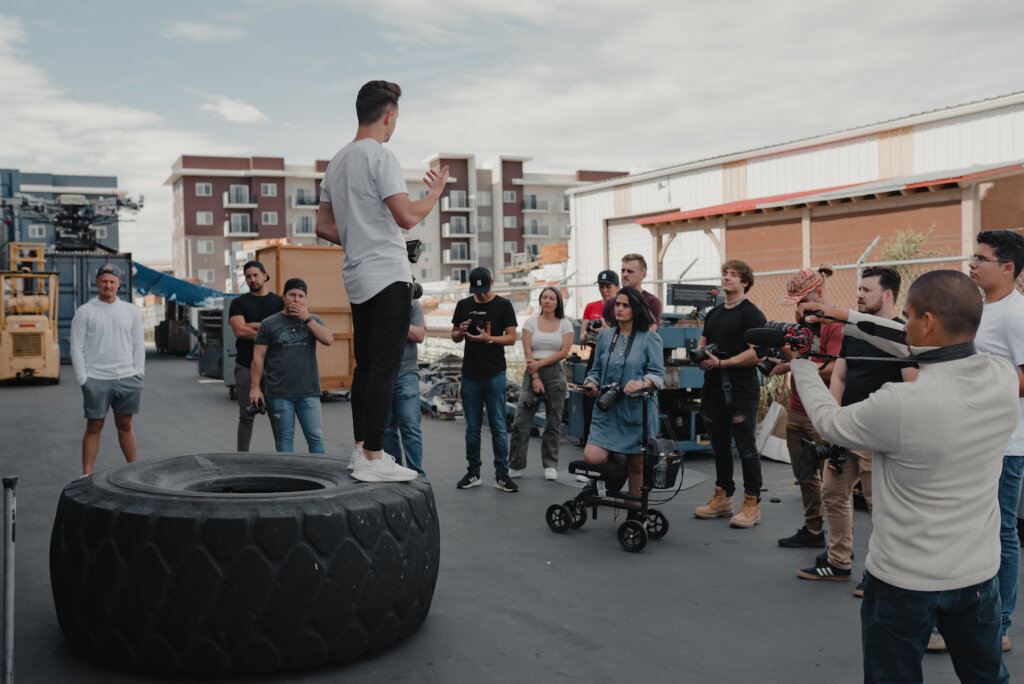
How do you balance pushing boundaries creatively and delivering what your client wants to see or what your audience wants to see?
If a client wants 100% control over the end product, it’s probably not a partnership I want, yes, they’re hiring me for a reason. If they can give me the parameters and the elements that must be in a piece of concept, then allow me to use my creativity to bring it all to life. It’s a good relationship. So, yeah, I think that I’ve had some realizations even in the last six months to a year that for so long, I adapted my look and my style and the content that I made to fit what the audience wanted to see, what the client wanted to see. And now I feel like I’m kind of getting to a point where frankly, the client, the brand, whoever’s hiring you as a creative, they want you to be creative. They’re hiring you for you, and they want you to create stuff that gets you excited, that you’re really passionate about, and then find a very easy and seamless way to integrate the brands into it. I’ve had conversations about this with my buddy Garrett Shortstash and he’s actually kind of the main person that opened my eyes up to this of like you gotta be a little bit of a hard ass when you’re working with brands because again, they’re hiring you because you are creative, they’re hiring you because only you can do exactly what you do. And so, standing your ground and being firm and creating projects and finding opportunities like the ability to get hit up by a brand to, to have an offer essentially to do work for a brand and be able to leverage that to actually create something that you personally are excited and passionate about is, is amazing, but not a lot of creators actually do that or are able to reach that full potential. So really take a concept that you are excited about and then seamlessly integrate the brand because we all know the best branding is branding that is like pretty lowkey, that’s not directly in your face, because people don’t really like to be sold to anymore.
What is the most challenging aspect of being a filmmaker/creative?
I jokingly said probably being the designated historian at every family gathering. It’s not actually that challenging. What’s challenging is that for some reason, and I think it’s getting a lot better, I think the way I look at it is you have filmmakers and all these different people who have been in the film industry specifically for quite a long time. And they go way further back than this wave of content creators that we’ve seen over the last few years. And there’s a lot of pride in this industry. A difficult aspect is allowing yourself to just be unapologetically you as a creative and not worry about the nonsense and the noise that you hear in the industry. I get shot down fairly often on social media in ads because I run an online film school and I’ve been making content for a decade. It’s not like I’m brand new to this, but there are still people who have been doing it for longer. It doesn’t mean they’re better frankly, but they’ve just been doing it for longer and there’s a lot of pride and so they see an ad where I’m like, hey, I can help you make better videos in 10 days and they just get really defensive and pissed off, and so there is a little bit of a stigma for some reason in the creative industry with this new wave and I think it will die down. I think a lot of these newer creators are a lot better than a lot of the old creators. And I think that they’re going to continue taking over. I don’t want to discredit some of the best film directors out there and people who have been doing it for a long, long time that are absolutely insane. But I don’t know, it’s one of the hardest parts is just realizing that you can’t please everybody in this industry.
What’s your favorite project that you’ve worked on?
I move on really quickly from project to project. I don’t really have a favorite. I don’t have a favorite and I don’t really know what to send you. The type of concept that I make is usually a lot of short-form content, that’s kind of my favorite medium right now is just really quick 15 to 30-second videos that are so fun. A cool piece is the Beginner vs. Pro, the most recent one, Beginner with Ronin 4D vs. Pro with Osmo Pocket 3. That one’s kind of recent and it’s fun and a piece that I’m proud of because I shot it on a camera you wouldn’t typically shoot that kind of video with. But that’s one that I was proud of because it just turned out really good and it’s always fun to shoot a $3 million hypercar.
How do you search for music on Musicbed or some tips that you give other filmmakers to search on Musicbed?
I like to use keywords like Lo-fi or Hip Hop, and just search directly on the home page. Even if I do find a song that I like, and I wouldn’t use it for that specific project that I’m browsing for, I still save it to my favorites. So I have that collection that I can look back at and use it in a different video in the future. I think that’s key. Honestly, you want to be able to hop on and find the song immediately and sometimes it’s a simple enough edit where like, oh yeah, that totally works. This song works versus this song is perfect are two different things. But depending on the video, that’s enough. It’s like, oh, that works, let me just use that one. And I think for the most part, those are the kind of songs that I’m looking for. I’m not looking for anything perfect or specific and for some videos, I need just the right one and those take a bit more time to find. But yeah, if you casually browse, even if you’re searching for music for a completely different video and you find a song that’s like, oh, it’s not good for this video, but you like the song, just save it. The more you save stuff that you like and that resonates with you, the easier it’s gonna be to find, to get music for upcoming projects because you’ll have a bunch of stuff saved and you know you like it because you saved it. Once you get enough, it’s like, hey, I need a song for a video. The first thing you’ll do is you’ll go to your saved songs and check those out. So I think that’s good just to be proactive and save stuff that you like.
Why do you utilize Musicbed in your work?
Musicbed by far has the best selection that doesn’t feel like corporate jingles. They’re real songs by real artists. Musicbed consistently just has some of the best music. And so I use Musicbed when I need stuff for YouTube and I just don’t want to risk any sort of demonetization on a video. I will absolutely use Musicbed. And then with client work as well, we’ll use Musicbed if we need stuff for different ads because it’s not just the Fulltime Filmmaker YouTube channel, it’s also my studio productions. And then even occasionally with influencer-type clients, just on my personal brand, and in those cases, I need music and Musicbed is a great spot to get that.
–
Explore a curated playlist of Landon’s favorite songs to use in his work—available to license only on Musicbed.















































































